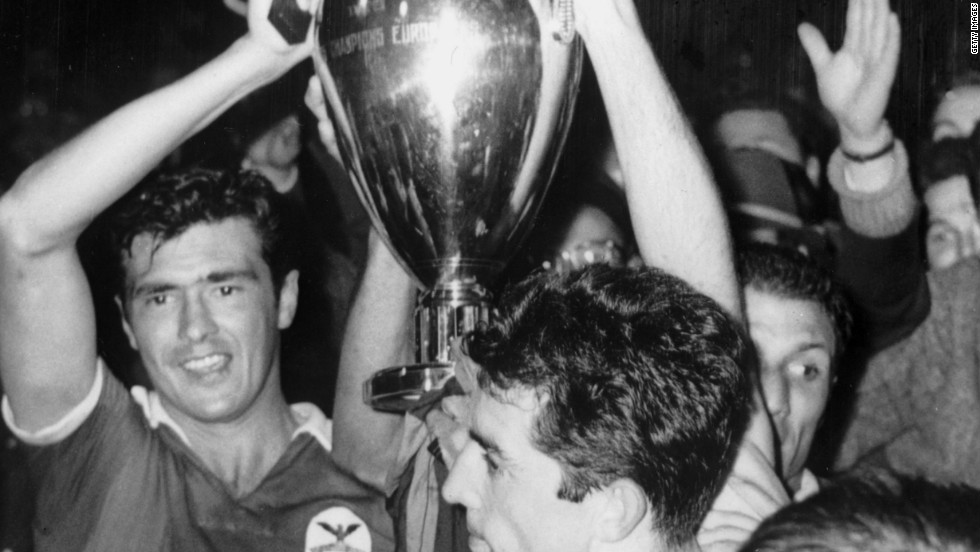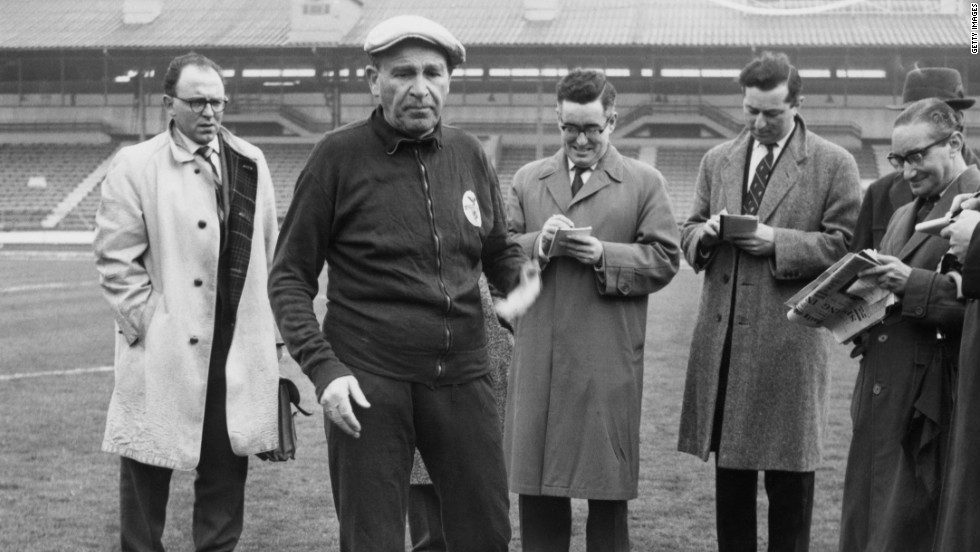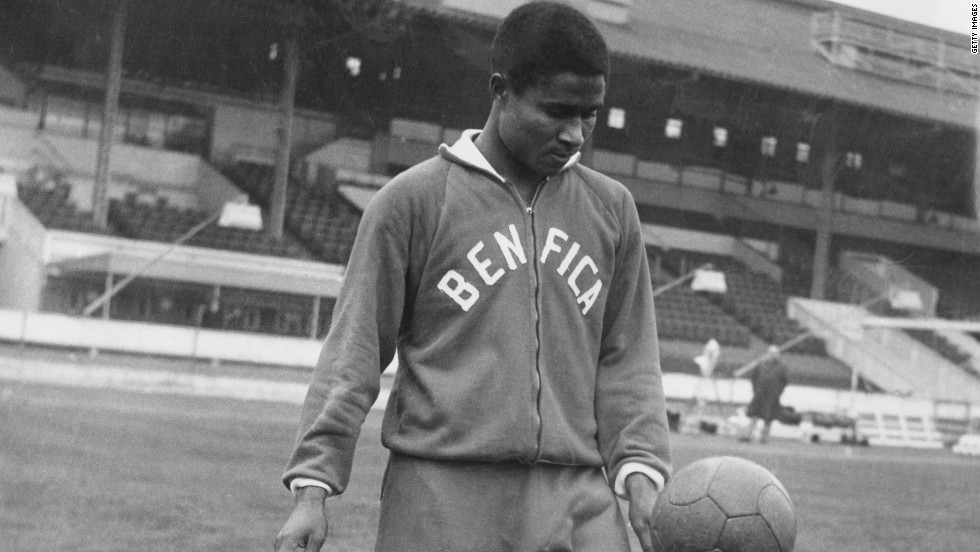Cult Heroes and Club Icons: Benfica's Curse of Bela Guttman
Not in a hundred years from now will Benfica ever be European champion.
Tuesday, Portuguese giant Benfica faces the unenviable task of a trip to Bavaria to face Bayern Munich in the first leg of the Champions League quarter-finals.
The fixture marks Benfica’s sixth quarter-final appearance in continental competition in 11 years - the third in Champions League - and though far from favourites, Rui Vitoria’s Lisbon lot has showed some punch, led by veteran forward Jonas and one of football’s emerging teenage gems, Renato Sanches.
Pundits will say Benfica has no shot, while those fascinated with the mysticism and sorcery of conspiracies and curses will agree, saying the club has a burden too great to surmount. Such is the lasting influence of former manager Bela Guttman.
Former European Legends
Titans domestically, Benfica’s continental triumphs of the 1960s haven’t been replicated in over six decades, reaching European finals eight times since winning back-to-back European Cups in 1961 and 1962.
Hungarian gaffer Bela Guttman was at the helm for those two conquests, topping Spanish giants Barcelona (3-2) and Real Madrid (5-3) in successive seasons after the latter had won the first five installments of the tournament.
Guttman's last match bossing Benfica during that spell was the victory over Real, and the circumstances surrounding his dismissal have become the stuff of legend.
The standard for excellence in Portugal’s top flight with a record 34 titles paired with 25 domestic cups, the Aguias form the Primeira Liga’s ‘Big Three’ alongside rivals Sporting and FC Porto.

None of the three clubs have been relegated from the top tier, and between them boast 79 of the league’s 81 titles (Porto – 27, Sporting – 18). Only Belenenses (1945-46) and Boavista (2000-01) have marred Os Tres Grandes’ spotless record.
Like nemesis Porto - who last won the Champions League in 2003-04 under Jose Mourinho after hoisting the European Cup for the first time in 1986-87 - Benfica has enjoyed some success on the continent against clubs from Europe’s glamour leagues.
Despite a near-automatic spot in Europe each year by virtue of the Primeira Liga's perpetual three-club dominance, Benfica has been unable to replicate the heights experienced under Guttman.
The Remarkable Development of a Managerial Maven
A Hungarian Jew who is credited with changing the modern face of football, Guttman, alongside contemporaries and countrymen Marton Bukovi and Gusztav Sebes, pioneered the implementation of the 4-4-2 formation.
It was a different era, and Hungarian coaches were a hot commodity in the sport.
Centre-back by trade, Guttman's playing career witnessed spells with Austrian Jewish association side Hakoah Vienna as well as five New York City-based clubs before he hung up his boots in 1933.
He was appointed Hakoah manager the following year, sparking the infantile stages of a bizarre coaching career.

Like a Kerouacian nomad content to move just as surroundings had become a source of comfort, Guttman rarely stayed with a club longer than two seasons. With more than two dozen coaching appointments on his resume, the Budapest-born gaffer was a man of travels, managing European clubs in Portugal, Austria, Italy, Hungary, Cyprus, and the Netherlands; as well as across the pond in Uruguay, Brazil, and Argentina.
There are as many legends about Guttman as there are stamps on his passport, and even without the circumstances surrounding his departure from Benfica, his 40-year tenure as a manager is a noteworthy anecdote in the annals of football.
A promising coaching career was sidetracked in 1939, when World War II broke out.
Unlike many of his family members who died in concentration camps, Guttman was fortunate to escape to Switzerland, where he was confined in internment until the war ended six years and a day after it began. Almost instantly, Guttman returned to football.
Bela Guttman's Benfica
After a year with Brazilian giant Sao Paulo - his 16th gig bossing a side - Guttman made the Trans-Atlantic trip to Portugal.
Following a season at Porto where the Dragoes overcame a five-point margin to best Benfica and win the 1958-59 title, Guttman crossed enemy lines to manage the Lisbon side.
Upon joining Benfica, Guttman wasted little time imprinting his influence on the club. He sacked 20 senior-team players, promoted several youth-team talents and subsequently won the league in his first two seasons in charge. One of those players was Eusebio, who in fifteen years with Benfica forged his place as the club's best ever player.

The second successive league title in 1960-61 was paired with the club's first European Cup title.
Portuguese international stars Jose Aguas and Mario Coluna each scored, while Barca keeper Antoni Ramallets' own goal cancelled out efforts from the Catalans' Hungarian attack tandem of Sandor Kocsis and Zoltan Czibor. Benfica's triumverate of Aguas, Jose Augusto, and Santana finished in the tournament's top five in goal scoring.
The following year, Benfica finished third in the league, but won its second European Cup final on the bounce with a 5-3 come-from-behind victory over Real Madrid. Down 3-2 after 38 minutes courtesy of a hat-trick from Hungarian deity Ferenc Puskas, Coluna scored before a Eusebio brace three minutes apart cemented a win of epic proportions.
Benfica was now perched atop the pinnacle of European football, and understandably, at the end of his third season with the club, Guttman wanted a raise.
Aftermath of the Gaffer’s Dismissal
Once Guttman's request for a pay raise was rejected by recently elected club president Antonio Carlos Cabral Fezas, an already prickly personality was pushed over the edge, prompting the manager's cursed words, "Not in a hundred years from now will Benfica ever be European champion."
Guttman's dismissal from Benfica wasn't his only sacking shrouded by controversy. Like many other Hungarian gaffers of the era, Guttman enjoyed a spell in Italy's top flight. In his second season in charge of AC Milan in 1954, he was let go following a series of disagreements with the club's board, despite the Rossoneri being in first place at the time.
The Hungarian capped off a bizarre tenure in Italy's second city with a perplexing statement:
"I have been sacked, even though I am neither a criminal nor a homosexual," he said during a press conference mired in disbelief. "Goodbye."

It's difficult to imagine a career as peculiar as Guttman's not involving some form of mysticism.
After Guttman's exit from Benfica, the club has made five European Cup finals in 1963 (AC Milan), 1965 (Inter Milan), 1968 (Manchester United), 1988 (PSV), and 1990 (AC Milan), losing all five and perpetuating myths that the coach's curse has has become a burden too great for the Portuguese titans.
Those top-tier defeats have been paired with three UEFA Cup/Europa League finals losses in 1983 (Anderlecht), 2013 (Chelsea), and 2014 (Sevilla).
Forgive Benfica supporters if some of them find truth in the curse. The Europa League final defeat to Chelsea and Branislav Ivanovic's injury-time winner is the latest in a long line of narrow losses on Europe's stage that suggest a more divine force may be involved.
Not in a hundred years from now will Benfica ever be European champion.
Ahead of the 1990 Champions League final against Milan in Vienna, a now-retired Eusebio visited a local cemetery. Buried in that cemetery was the man who both gave him his first shot in football, and the man who cursed the club he loved.
The Portuguese legend quietly pleaded with Guttman's grave to reverse the curse, weeping as he silently begged his former manager to overturn the calamitous scourge ahead of that night's continental final.
Eusebio walked away that day hoping that his efforts would alter the course of history, though hours later he would discover that his attempts, like many before him, were futile.
HEADLINES
- Europa League draw: Forest in playoff with Fenerbahce, Celtic get Stuttgart
- Thrills and spills as Europa League's opening phase concludes
- Villa's injury issues worsen as Tielemans ruled out for up to 10 weeks
- 7 PAOK fans die in bus crash en route to Europa League game in France
- Europa League roundup: Aston Villa, Lyon seal spots in last 16